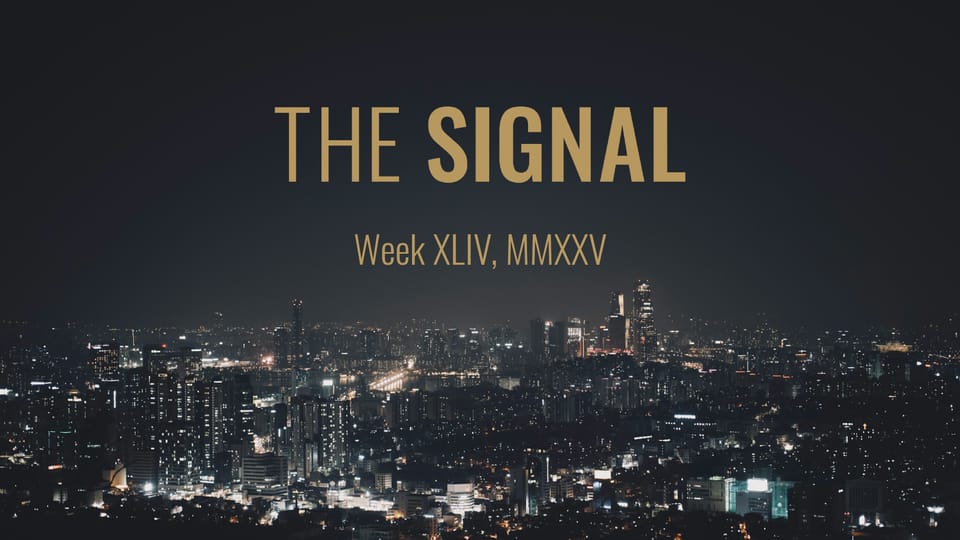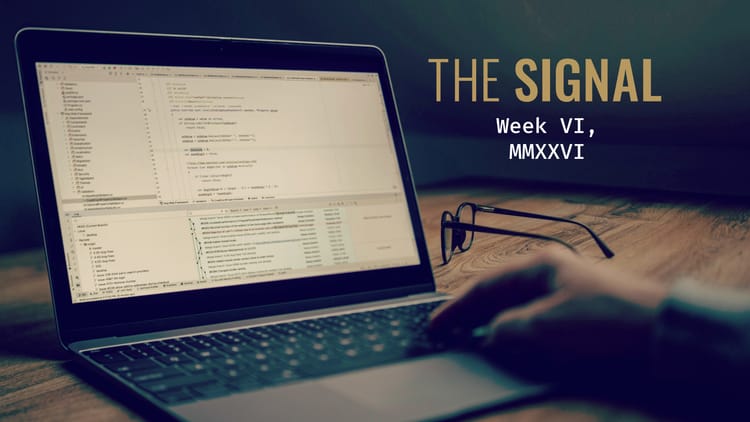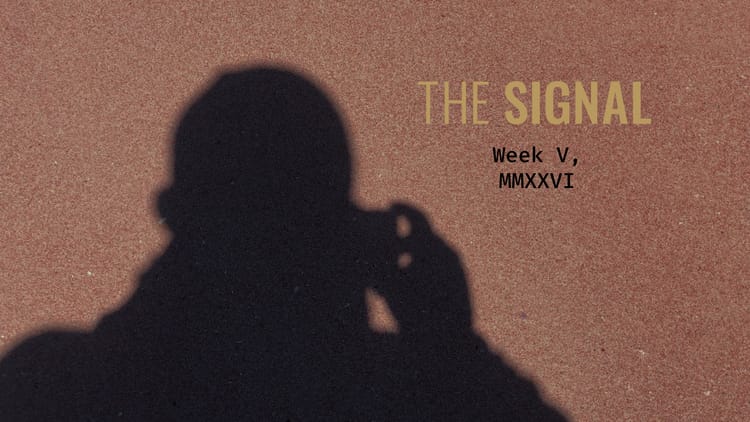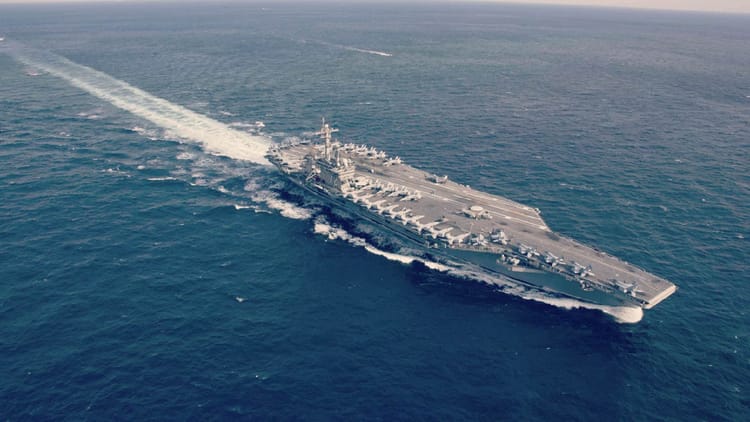Phase one

This week
- What does Donald Trump’s preference for endless renegotiations over permanent settlements tell you about his diplomatic dealmaking?
- Why is Moscow testing a new nuclear weapon? Sergey Radchenko on Vladimir Putin’s atomic threats—and what Western leaders are hearing in them.
- What’s driving the collapse of southern Africa’s postcolonial ruling parties? Hussein Solomon on the problems of turning a liberation movement into a government.
Weather report
- Why Asia could face an unusually active end to storm season
+ Cultural intelligence
- How did Hindu nationalism take over the world’s biggest democracy? Javed Gaya’s new book, Majoritarianism in India: Roots and Consequences.
- Is disco … undead?
- & The week in new music

Developments
What’s happening? October 25-31.
The art of the deals
Thursday morning at a military airbase in Busan, South Korea, U.S. President Donald Trump and the Chinese Communist Party’s General Secretary Xi Jinping shook hands for a meeting that lasted just under two hours. Trump emerged to declare it “a 12, with 10 being the best,” and announce a deal: China would pause its export controls on rare-earth minerals for a year, buy American soybeans, and crack down on Chinese fentanyl-precursor chemicals. In return, the U.S. would drop tariffs on Chinese goods from 57 percent to 47 percent. Markets rallied. The 100 percent tariffs Trump had threatened and scheduled for November 1 disappeared. Both sides agreed to keep talking—and to renegotiate the whole arrangement in a year.
The form of the agreement may feel familiar: Three weeks earlier, on October 8, after days of negotiations in Egypt, Trump declared that Hamas and Israel had reached the first phase of his Gaza peace plan. Hamas would release all hostages, hand Gaza’s administration to “independent technocrats,” and Israel would pull back to agreed lines. Trump called it a breakthrough. What Hamas didn’t agree to: disarmament or permanent exclusion from governance. Those questions—the actual substance of whether Hamas remains a player—were reserved for a second phase, still under negotiation.
The China framework defers the hard mechanics in a similar way: How exactly will Beijing demonstrate cooperation on fentanyl? What constitutes “substantial” soybean purchases—and how does enforcement work when China bought none in September, while sourcing from Brazil and Argentina instead? The rare-earth pause lasts one year, after which both sides will have to sit down again. “Every year we’ll renegotiate,” Trump told reporters aboard Air Force One.
Two deals, three weeks apart, both deferring the hardest questions. At the same ASEAN summit where he announced the China framework, Trump brokered a Thailand-Cambodia ceasefire—another deal praised as a breakthrough that deferred mechanics to implementation phases. Is there a pattern here?
And if so, what is it?
- Signing over settling. Trump’s frameworks prioritize getting something signed now over resolving what happens later. In Gaza, the ceasefire went into effect on October 10, hostages came out within days, and Trump flew to Egypt for a ceremonial signing. What didn’t get resolved: Hamas’s disarmament, who governs Gaza, what happens after the interim phase. The framework with China defers the mechanics of cooperating on fentanyl cooperation, verifying soybean buys, and easing U.S. restrictions on advanced-technology exports to Chinese firms. Both agreements include provisions to renegotiate or walk away.
- Possession over process. Framework agreements favor whoever holds the better current position. Israel controls Gaza’s territory and can resume strikes when it claims violations—which Israel’s Prime Minister Benjamin Netanyahu did after Hamas returned remains that didn’t belong to the deceased it was supposed to be returning. Hamas agreed to hand administration to technocrats without conceding actual influence. China used its near-monopoly on rare-earth processing to extract tariff reductions while committing only to a one-year pause on expanding export restrictions. As Wolfe Research notes, “China successfully used the rare earths export controls and a soybean embargo to force the U.S. to lower tariffs.”
- Perpetual renegotiation. Trump described the China arrangement as something that “will be renegotiated every year,” treating ongoing talks as natural rather than problematic. His business background emphasized deal-making as perpetual rather than final. The approach works for certain goals: stopping immediate crises, declaring victories, buying time. What it doesn’t do is resolve underlying tensions. Israel and Hamas each keep accusing the other of violating the Gaza ceasefire while insisting they remain committed to its terms.
- The precedent. Framework agreements that defer core issues to later phases have a record. The 1993 Oslo Accords established a five-year transition for Israeli-Palestinian negotiations, deferring final decisions on Jerusalem, refugees, and borders to later talks. Those talks never happened. Israel continued settlement construction during the “interim” period, and the framework became the endpoint. The 2015 Minsk agreements tried the same approach for eastern Ukraine, leaving Russia and Ukraine with irreconcilable interpretations of sequencing—producing a frozen conflict neither could resolve. Both started as arrangements meant to lead somewhere permanent. Neither did.
- The declared victory. Markets rallied on the China framework because it removed the immediate threat of 157 percent tariffs. Trump flew to Egypt for a ceremonial Gaza signing with regional leaders. The frameworks deliver what Trump prioritizes: the signing ceremony, the market response, the headline that says “deal reached.” What they don’t deliver—durable compliance, resolved disputes, permanent settlements—may not be what he’s after.
Whether this approach creates anything beyond signing ceremonies and temporary solutions depends on what the frameworks are actually for. Trump’s comment that the China deal “will be renegotiated every year” suggests he’s comfortable with business-style agreements that never reach a final form—that the framework itself, with its perpetual revision, serves his purposes better than permanent resolution would. Markets reward crisis prevention. Partners accept ambiguity when it preserves their positions. Both Israel and China emerge from their framework negotiations holding the leverage they brought into them.
Oslo and Minsk show where this can lead: frozen conflicts that parties manage rather than resolve, with the stronger sides using “interim” periods to cement their advantages. Trump’s framework deals follow the same structure: Defer hard questions, prioritize signing over substance, convert final settlements into perpetual negotiation. Whether that’s strategy or just how he operates, the pattern seems to hold. Right now, the biggest questions in Gaza remain unsettled. Likewise, between the U.S. and China on trade. Both sides in each case have stepped down their conflict and agree to keep talking.
For Trump’s purposes, that may be enough. What’s unclear is whether managing conflicts beats resolving them—or just feels that way until the framework conditions collapse.

Meanwhile
- The atomic playbook. Trump left South Korea this week without meeting North Korea’s Supreme Leader Kim Jong Un—a widely speculated possibility throughout Trump’s Asia trip. He told reporters he’d “love” to meet Kim and felt “absolutely certain” he could resolve the standing conflict between the two Koreas—which have technically been at war since 1950—after South Korea’s President Lee Jae Myung presented him with the country’s highest honor for his “contribution to peace on the Korean Peninsula.” … Stakes: Can Trump’s peacemaker framing create diplomatic momentum? … Since: North Korean state media stayed silent on the American president’s visit. Kim test-fired cruise missiles the day before he arrived and has made his terms clear: He’ll only meet if Washington drops what he calls its “absurd obsession” with denuclearization. A CNN analysis notes that Kim now has Moscow for weapons deals, Beijing for trade, and a domestic narrative of resilience. In Pyongyang, it seems, a handshake with Trump no longer holds the currency it did in 2019.
- The end of a princedom. King Charles III stripped his brother Andrew of his remaining royal titles on Thursday, ordering him out of Royal Lodge, the 30-room Windsor mansion he’s lived in since 2004. No longer a prince, Andrew will now be known as Andrew Mountbatten Windsor. The king’s decision followed weeks of pressure after Virginia Giuffre’s posthumous memoir detailed alleged sexual encounters with Mountbatten Windsor—via trafficking by the late convicted sex offender Jeffrey Epstein—when she was 17. … Stakes: What did powerful figures connected to Epstein know, and when? … Since: There are nevertheless questions about the memoir’s credibility. Giuffre’s lawyers admitted in 2019 that an earlier manuscript she wrote was “fictionalized,” and she retracted graphic accusations against the attorney Alan Dershowitz—who was part of Epstein’s legal team—in 2022. In the United States, Trump’s Justice Department has released little on the Epstein files despite the president’s 2024 campaign promises. Attorney General Pam Bondi refused to answer Senate questions about why Federal Bureau of Investigation agents were ordered to flag documents mentioning Trump.
- &. Seven have been charged in the Louvre heist, with the jewels still missing. Authorities are racing to find them before they’re dismantled—assuming it’s not too late. … The Venezuelan dictator Nicolas Maduro suspended all energy deals with Trinidad after a U.S. destroyer docked there on Monday, calling the island “an aircraft carrier of the U.S. empire.” While Trinidad gets 93 percent of its energy from Venezuelan gas, its prime minister responded: “Our future does not depend on Venezuela and never has.” … The Netherlands election ended in a dead heat on Friday—the center-left D66 and Geert Wilders’ hard-right PVV each won 26 seats. Every mainstream party has ruled out working with Wilders, so D66’s Rob Jetten is apt to become prime minister regardless. … The U.S.-government shutdown hit day 32 on Friday, as SNAP benefits—the government’s main food assistance—ended for 42 million people. A Post-ABC poll showed Americans blame Trump and Republicans by 15 points. … Hurricane Melissa grazed Bermuda over Thursday night, before heading north toward Newfoundland as it begins dissipating into a post-tropical cyclone. The storm has killed at least 40 people across Jamaica, Haiti, and the Dominican Republic.

Features
Dive deeper
‘A tiny, flying Chernobyl’
Why is Moscow testing a new nuclear weapon? Sergey Radchenko on Vladimir Putin’s atomic threats—and what Western leaders are hearing in them.





